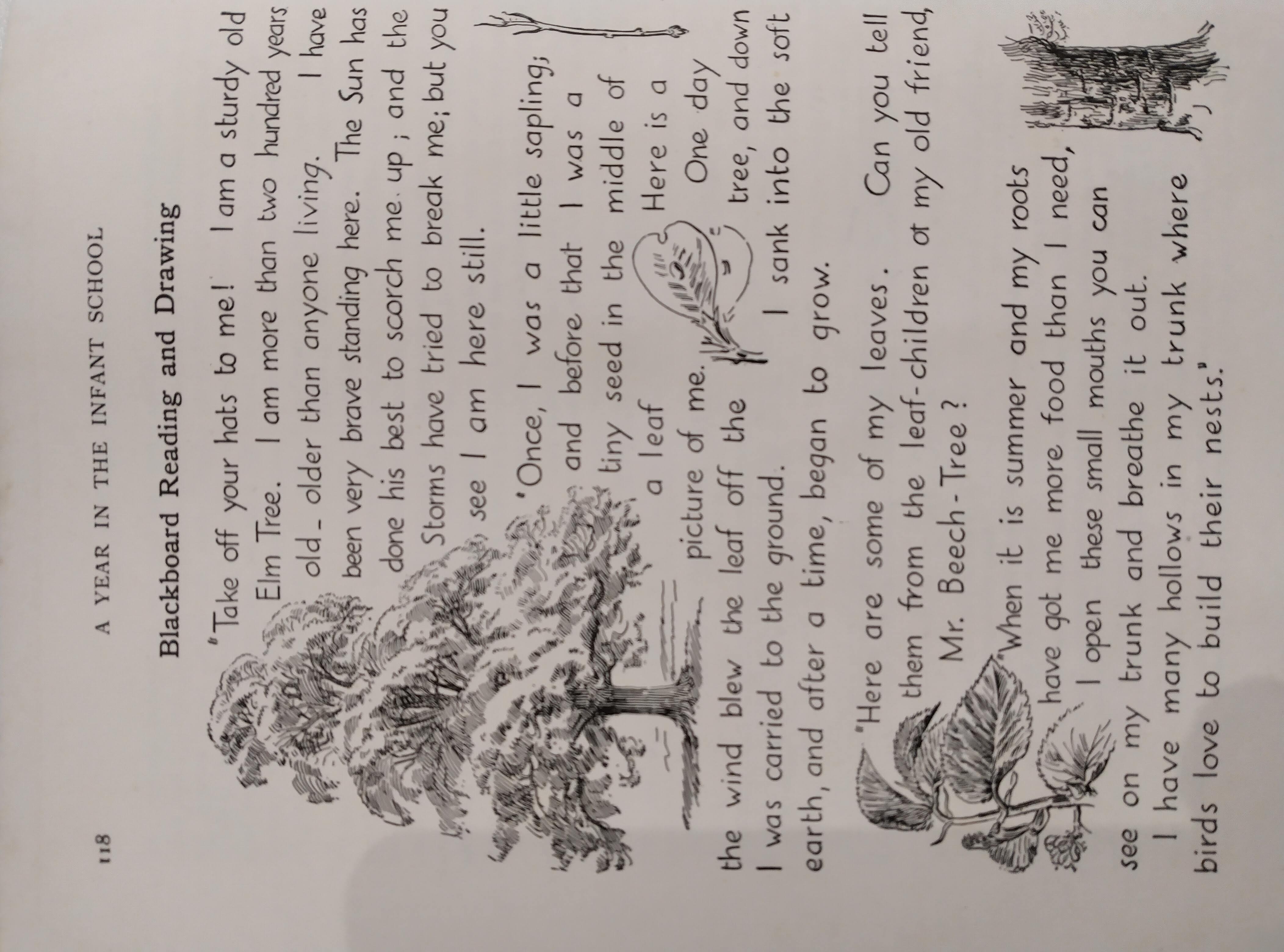What seems forever – and then it isn’t
By Fleur
@Fleura (29160)
United Kingdom
February 15, 2023 1:31am CST
For hundreds of years elm trees were a fixture of the British landscape. Their distinctive ‘rectangular’ profile adorned many a hedgerow, and elm trees were a regular feature in landscape paintings such as those by John Constable in the 19th century.
And then along came Dutch elm disease, and almost overnight these magnificent trees all vanished from the landscape, just like that.
I remember a large elm tree in the hedge between two fields behind our house. When I was quite small I could see it from my bedroom window. I still miss seeing it there when I visit.
This page is from a teacher’s book of activities for primary school children through the year, dating from the 1950s. Elm trees were so ubiquitous, no-one could have imagined them not being there.
Of course in another couple of decades there will be no-one left who remembers them and the people alive then won’t even realise that anything is missing. This is true of so many things – all the birds, wild flowers and butterflies that were so common that no-one even thought to mention them and now we don’t realise what we have lost.
All rights reserved. © Text and image copyright Fleur 2023.
13 people like this
10 responses
@marguicha (215603)
• Chile
15 Feb 23
This is when I hope that the DNA of those beautiful trees have been saved.
3 people like this

@Juliaacv (48457)
• Canada
15 Feb 23
Just reading the little story took me back to the stories that my Grandpa would tell me.
When his family landed here, they were homesteaders, 2 brothers received 50-acre parcels of land from a land grant for poor Irish immigrants from Queen Victoria.
The area was forested with elm, birch, oak and walnut trees.
It was in such abundance that our family, out of necessity, ran a lumber mill, as everyone who settled had to clear their land. Lumber was made from those fine trees. It made me a bit sad when I read this.
We have an antique birch table made from someone in a previous generation. It has been taken apart as the pedestal rotted, but otherwise, once that is rebuilt, the table can be put back together and hopefully remain in the family for generations to come.
1 person likes this
@Fleura (29160)
• United Kingdom
15 Feb 23
@nicegolden I think they would literally 'stake their claim' and then they had some conditions, for example to turn it into productive agricultural land for at least two years before they could legally say it was theirs. Something like that anyway.
1 person likes this
@nicegolden (216)
• Shenzhen, China
15 Feb 23
if you mean they paid nothing for the land?
1 person likes this

@Fleura (29160)
• United Kingdom
15 Feb 23
All the mature ones are completely gone, several decades ago now. Some small ones are still to be found. Apparently the beetles that bore into the bark and carry the disease don't bother with smaller trees, but then once they get to a particular size they are targeted. There have been efforts to select disease-resistant trees but of course the work takes decades so it still isn't definite whether they are really resistant.
2 people like this
@JudyEv (326052)
• Rockingham, Australia
15 Feb 23
@Fleura That's really sad. Entry to some areas of our eucalypt forests is restricted as the spores can be spread on car tyres, etc. On the Bibbulman Track (a walking trail), hikers are requested to clean their shoes at various points but I'm not sure how effective these various measures are.
1 person likes this
@allknowing (130064)
• India
15 Feb 23
Sad that they just vanished Hope someone will take interest and get them back.
1 person likes this
@changjiangzhibin89 (16542)
• China
15 Feb 23
What a shame ! Those elm trees vanished overnight ! Why didn't have anyone that could deal with this fungoid killer then ? what concerns us is that many rare and endangered species on Earth are on the verge of extinction.
1 person likes this















